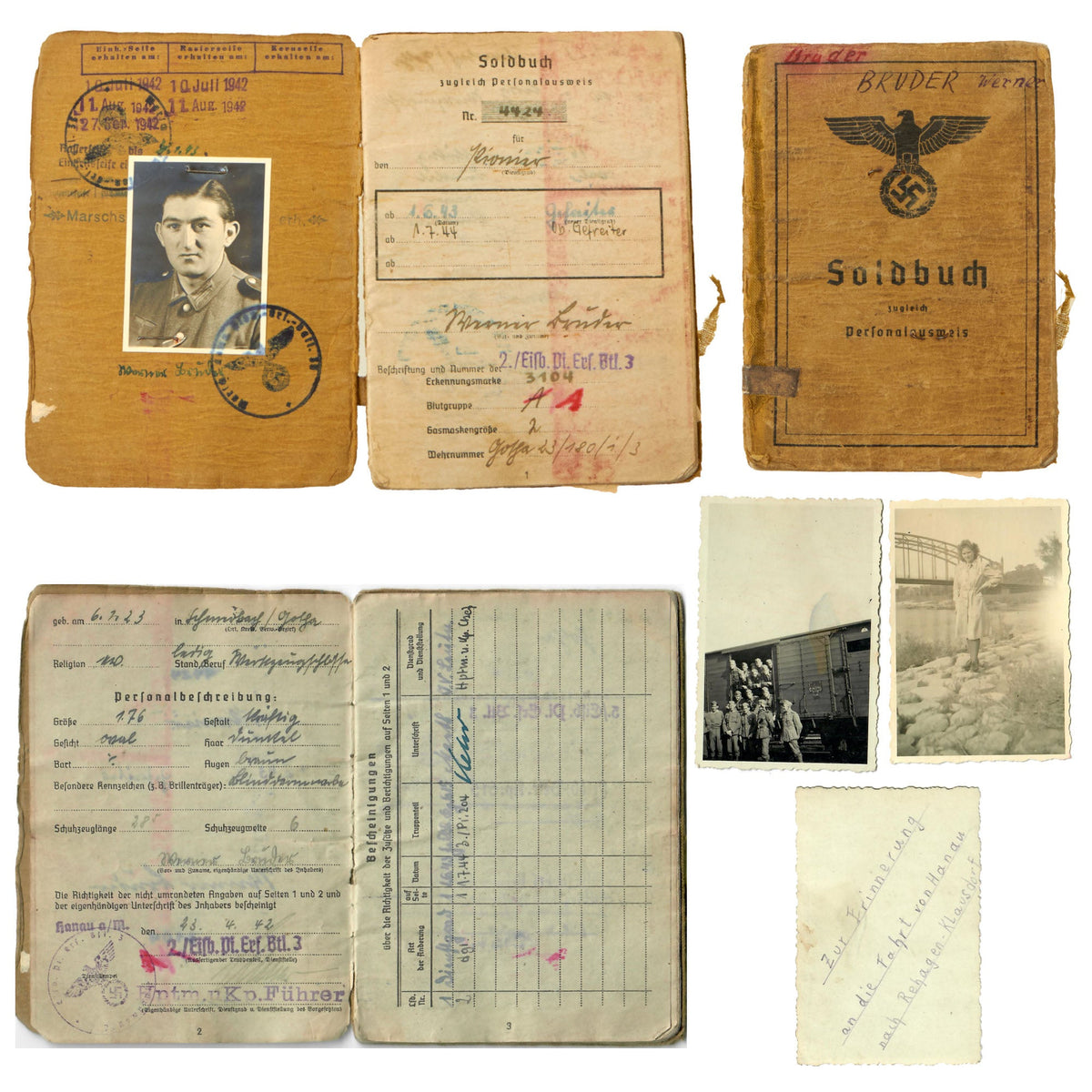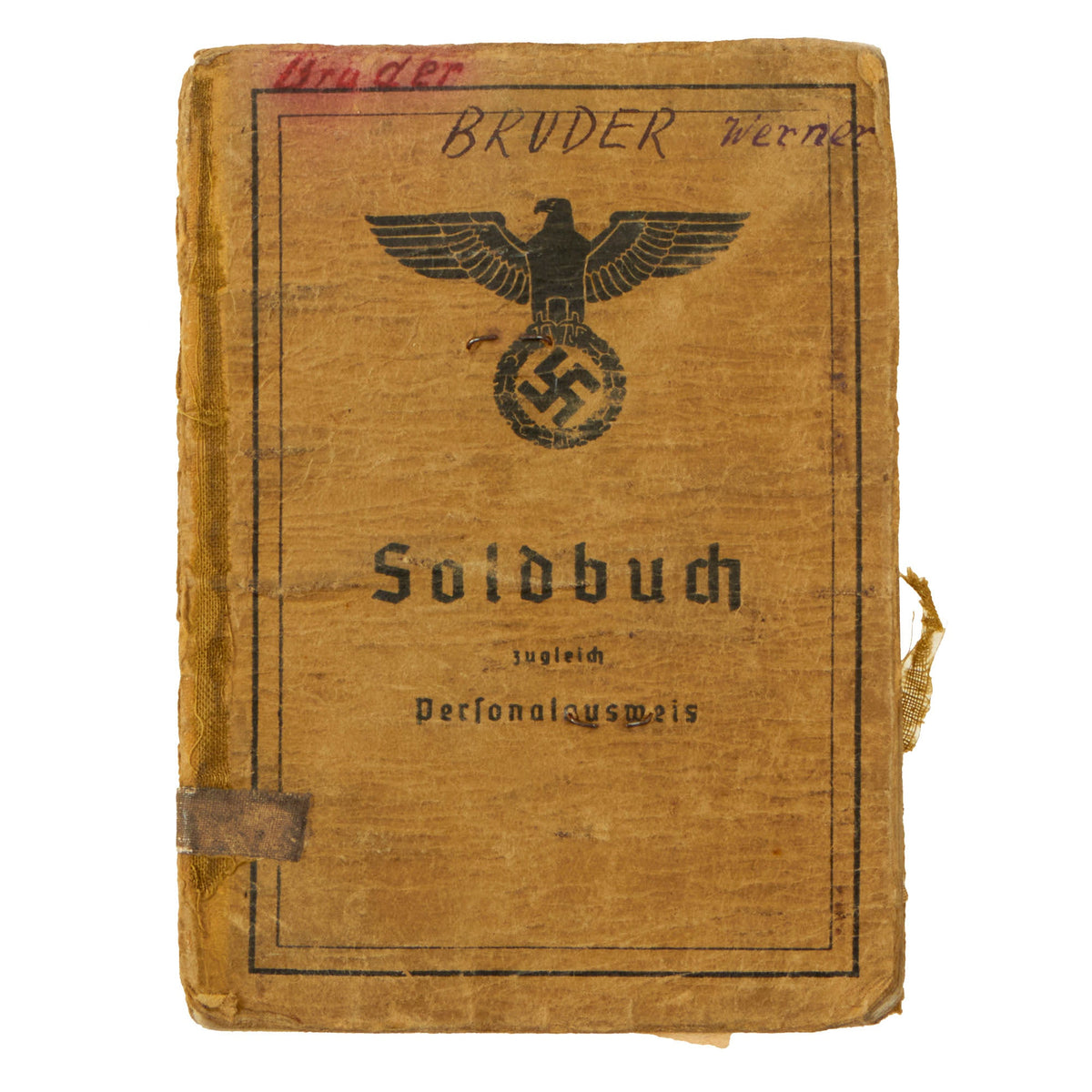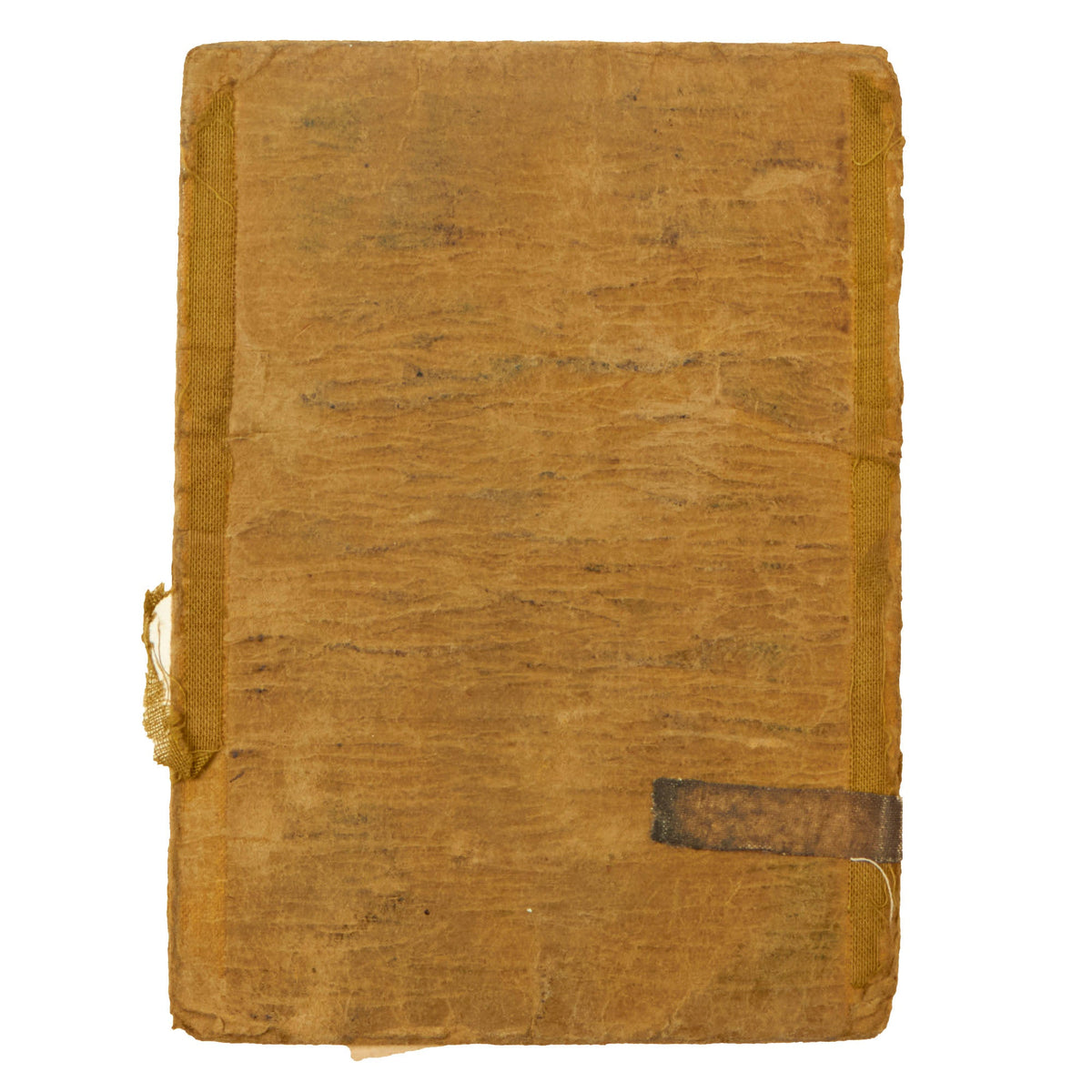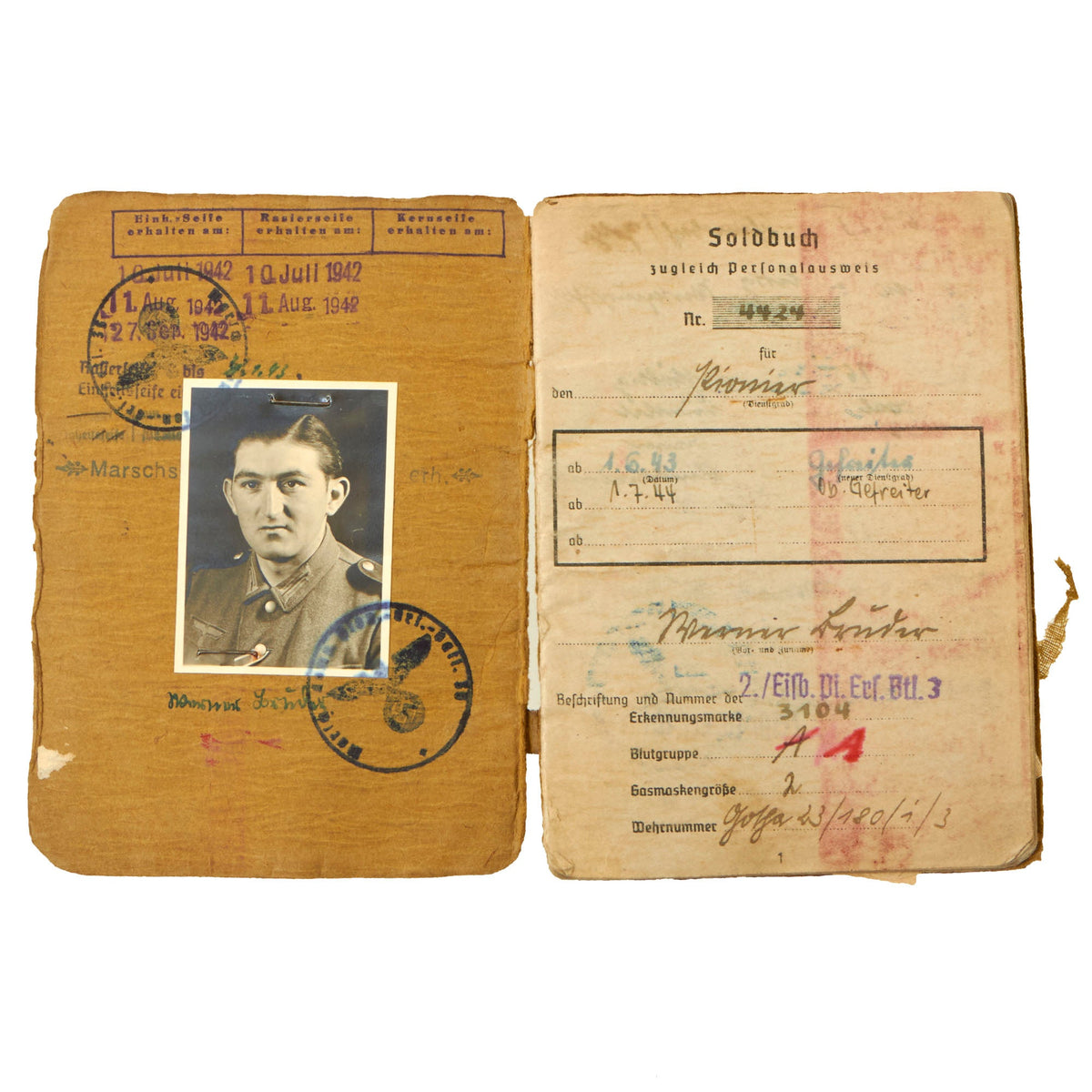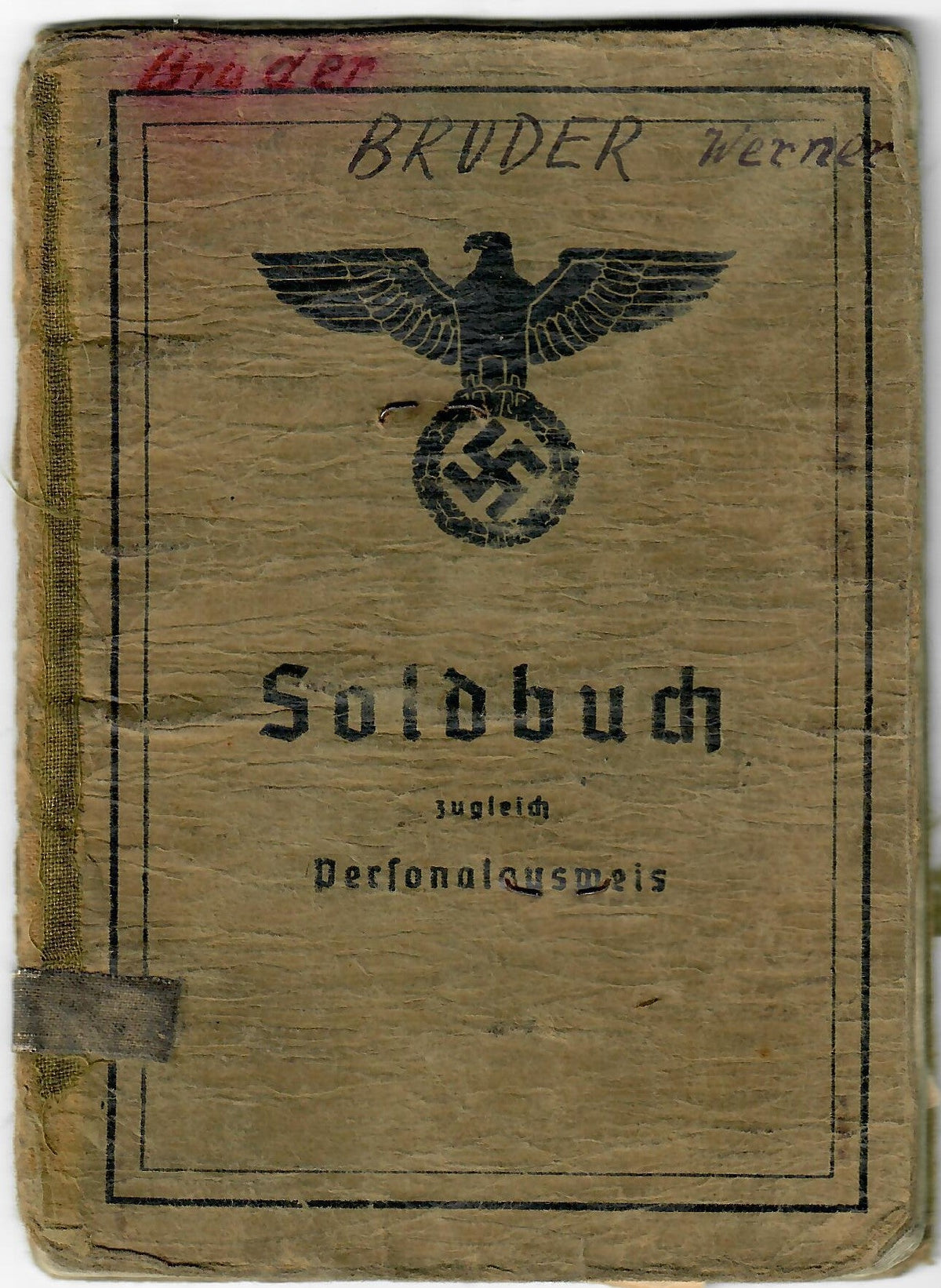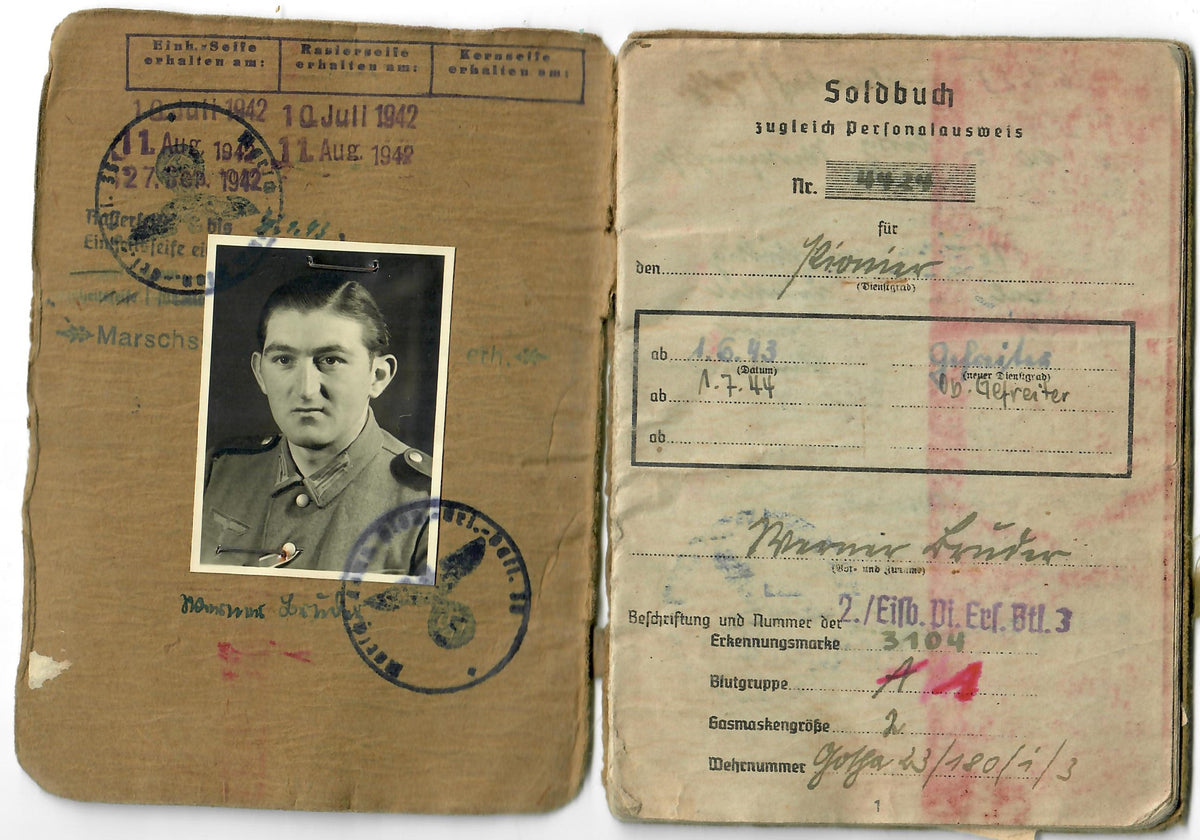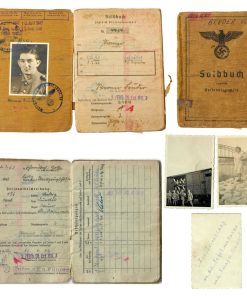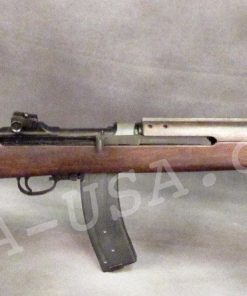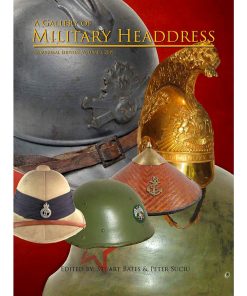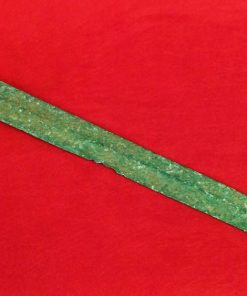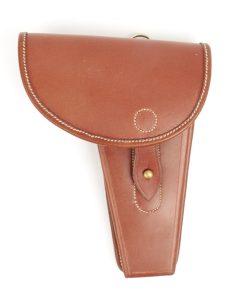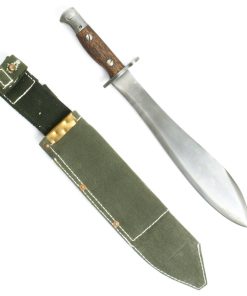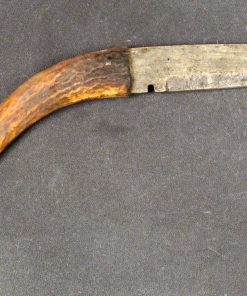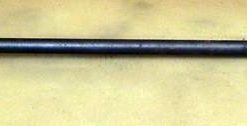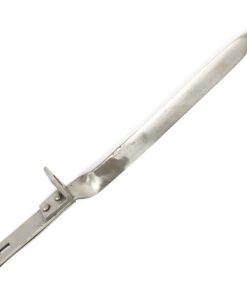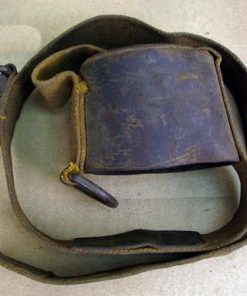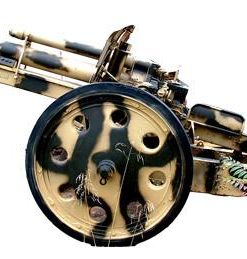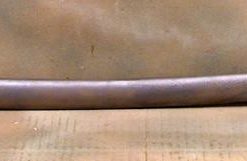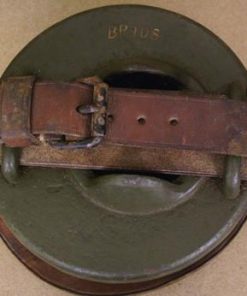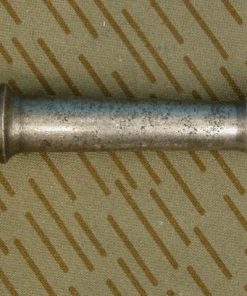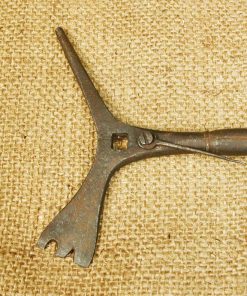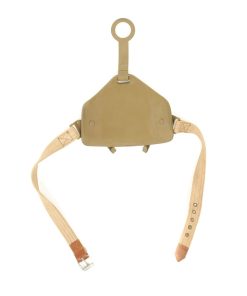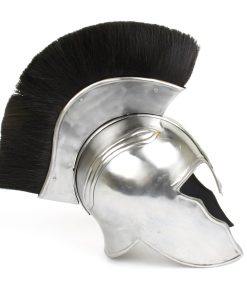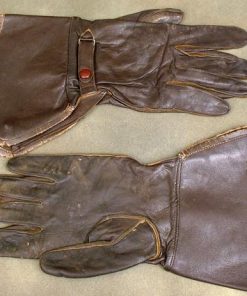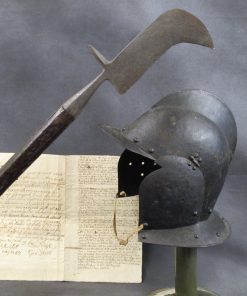Original German WWII Heer Soldbuch Soldier ID & Payment Book for Eisenbahn Pioneer Werner Bruder with Two Photos Original Items
$ 295,00 $ 118,00
Original Item: One-of-a-kind. This is a fantastic genuine WWII German Heer Army Soldbuch zugleich Personalausweis (Pay book and identity card), issued to Werner Bruder, born 6. 2. 23. The inside of the front cover still retains a picture of Bruder, retained by the proper type of staples, with stamps over the corners and his signature underneath. His rank is listed as being Pionier (Pioneer), the lowest rank in the Pionierekorps, equivalent to a Soldat in the Infantry, when it was issued 23. 4. 42 (April 23, 1942). He is listed as being part of the 2. / Eiſb. Pi. Erſ. Btl. 3, or the 2. Companie / Eiſenbahn Pioniere Erſsatz Batallion 3 (2nd company, Railroad Pioneer Replacement Battalion 3).
The first page also shows a series of changes in rank, which are listed below:
– 1. 6. 43 – Gefreiter
– 1. 7. 44 – Ob. Gefreiter
The Eisenbahn Pioniere or Railroad Pioneer groups were an integral part of the German supply chain, responsible for helping to extend German railroads as close to the front as possible. There was much war materiel that could be much more effectively transported by rail, especially during the 1940s. This book contains much information related to Bruder’s service, and will make a fantastic translation project for whoever purchases it. Overall condition is good and many pages are covered in handwriting and ink stamps, meaning this has some excellent further research potential.
Included with the book were some piece of paper and photos between the pages, including a photo of German soldiers in a rail car, presumably from Bruder’s service. It has an inscription on the back, which reads:
Zur Erinnerung
an die Fahrt von Hanau
nach Rehagen – Klausdorf
This translates to:
In memory of the journey from Hanau to Rehagen – Klausdorf.
Definitely a great set with further research potential!
Of note: the persons filling out the book and the service record wrote using Kurrentschrift, an older form of Germanic script writing, which is why the all the “u” letters are written as “ŭ”. In this script the lowercase “n” and “u” are identical, so the latter gets the arc shaped mark over it. This is not indicative of an umlaut or other diacritical marking.
More on the German Soldbuch:
The Soldbuch served the soldier as a personal identification document in wartime and as an authorization to receive pay from his own or outside pay-stations. In addition, it was identification for rail travel, detached service, leave, and for receiving mail. The Soldbuch was always carried by the soldier on his person in a tunic pocket. Leaving the book in one’s baggage or in one’s quarters was not permitted. The careful preservation of the book was in the best interest of the owner. The Soldbuch had to be kept in an orderly fashion. The owner must see to it, that all changes in pay due to transfer or promotion are immediately entered by his responsible duty station. The Soldbuch was an official document. Entries were only to be made by a Wehrmacht duty station. Making unauthorized changes is punishable as falsification of official documents. The loss of a Soldbuch was to be reported as soon the loss is discovered to the holders unit or duty station, and the issue of a new Soldbuch will be requested.
Fast Shipping with Professional Packaging
Thanks to our longstanding association with UPS FedEx DHL, and other major international carriers, we are able to provide a range of shipping options. Our warehouse staff is expertly trained and will wrap your products according to our exact and precise specifications. Prior to shipping, your goods will be thoroughly examined and securely secured. We ship to thousands clients each day across multiple countries. This shows how we're dedicated to be the largest retailer on the internet. Warehouses and distribution centres can be located throughout Europe as well as the USA.
Note: Orders with more than one item will be assigned a processing date depending on the item.
Before shipping before shipping, we'll conduct a thorough inspection of the items you have ordered. Today, the majority of orders will be delivered within 48 hours. The delivery time will be between 3-7 days.
Returns
The stock is dynamic and we cannot completely manage it because multiple stakeholders are involved, including our factory and warehouse. So the actual stock may alter at any time. It's possible that you may not receive your order once the order has been made.
Our policy is valid for a period of 30 days. If you don't receive the product within 30 days, we are not able to issue a refund or an exchange.
You can only return an item if it is unused and in the same state as the day you received it. You must have the item in its original packaging.
Related products
Uncategorized
Uncategorized
Uncategorized
Uncategorized
Uncategorized
Armoured Fighting Vehicles of the World: AFVs of World War One (Hardcover Book) New Made Items
Uncategorized
Uncategorized
Uncategorized
Uncategorized
Uncategorized
Angolan Rebel 1970s era 60mm Inert Display Mortar from Angolan Civil War Original Items
Uncategorized
Band of Brothers ORIGINAL GERMAN WWII Le. F.H. 18 10.5cm ARTILLERY PIECE Original Items
Uncategorized
Uncategorized
Uncategorized
Uncategorized
Uncategorized
Australian WWII Owen MK1 Machine Carbine SMG Custom Fabricated Replica with Sling Original Items
Uncategorized
Uncategorized
Uncategorized
Uncategorized
Armored Burgonet Helmet & Polearm from Scottish Castle Leith Hall Circa 1700 Original Items
